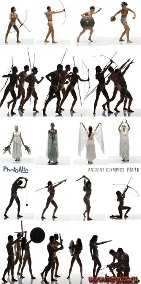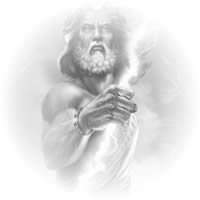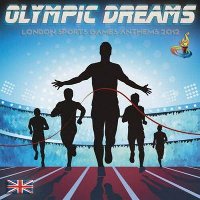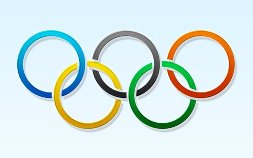ВУЗ: Не указан
Категория: Не указан
Дисциплина: Не указана
Добавлен: 16.03.2024
Просмотров: 99
Скачиваний: 1
ВНИМАНИЕ! Если данный файл нарушает Ваши авторские права, то обязательно сообщите нам.
Prompts: I just don't agree...; I'm not so sure...; All I know is... but at least...; How can you say such a thing! You seem to think that...; That is just the other way round. You are badly mistaken.
5. Try to describe your favourite game. Use a dictionary to look up any special words. Let your partners guess which game you are describing. Speak according to the plan that is given in the example:
E x a m p l e:
1. Number of players (per team):
Two teams of eleven players each.
2. Equipment necessary: a ball.
Each player wears shorts and special boots.
3. Place where played: a special field which has goal posts at both ends.
4. How to play and win: the players kick the ball to each other. They try to kick it between the goal posts of the opposing team. The opposing team tries to stop them. The team scoring the greatest number of «goals» wins.
5. Length of game: one hour and a half, with a break in the middle.
6. Some of the rules: only the two goal-keepers (who stand in front of the two goals) are allowed to touch the ball with their hands; no one can kick or push another player.
6. Act out the following situations:
1. Two friends are talking after a football match. One is happy – his favourite team has won; the other is not as his team has lost the match.
2. Imagine a dialogue between two sports fans about their favourite sports.
3. A friend of yours claims to be an «all-round sportsman». Once you call on him and find him surrounded by a thick cloud of cigarette smoke. You have a talk with him.
4. It's Sunday afternoon. In a few minutes, there will be a football match on TV, while on another channel there will be a fashion show. Argument between husband and wife.
5. You are in the hall of your institute. You are an ardent athlete and like to get up at sunrise, at which your room-mate is grumbling. You try to make him do at least his morning exercises.
GRAMMAR REVIRSION
1. Fill in the blackets with the verb to be in Present, Past, Future Simple:
1. Whose hockey team … the best last year? 2. I … fond of sport. 3. All the sportsmen of our basketball team … in excellent form now. 4. I … on our football team two years ago. 5. I hope the score … five to nil in favour of our team. 6. The attacks of «Spartak» … too week so that the game ended in a draw. 7. He has six lesson. It not … the best day for training. 8. The match between «Zenit» and «Rubin» … the most interesting, I hope. 9. Who … the champions in the last world figure-skating tournament? 10. Who … your coach?
2. Replace the Infinitives in brackets by the correct tense-form of verbs (Present, Past, Future Simple):
1. They (to train) much last month. 2. I often (to go) to the stadium. 3. They (to tell) me about the competition yesterday. 4. They (to play) basketball two days ago. 5. She (to run) fast? 6. How long (to train) you tomorrow? 7. It (to take) me 20 minutes to get to the Palace of Sports. 8. You … (to see) the football match last Sunday? 9. She (to finish) her training at 5 o'clock every day. 10. The referee (to put) the half-back out of the game for offences yesterday. 11. You (to get) there by walking or by cycling? 12. The football match (to take place) at the central stadium next week. 13. All our students (to take) a keen interest in Olympic Games. 14. They (to go) to the competition in wrestling yesterday? 15. When you (to begin) to go in for sport? 16. He (to speak) about the contest every time we meet. 17. The game of water polo (to take place) in three days. 18. What sportsman you (to like) best of all? 19. Who (to compete) in track-and-field events at the last competition? 20. They (to see) an interesting game over television yesterday.
3. Replace the Infinitives in brackets by the correct tense-form of verbs (Present, Past, Future Progressive):
1. Many children (to play) handball and basketball now. 2. He (to train) in the sports hall now. 3.The flags of Russia (to wave) over the stadium during the last match. 4. Both adults and children (to enjoy) the hockey match over television when I came. 5. Our sportsmen (to establish) new records now. 6. They (to swim) in the swimming-pool from 6 till 8 tomorrow. 7. Where are you? – I (to go) to the stadium to train outdoors. 8. When she came, he (to watch) boxing on TV. 9. We (to dive) when you come to the swimming-pool. 10. I (to wait) you at the stadium at 3 o'clock. 11. The women football team (to play) here. 12. We (to skate) the whole last Sunday. 13. I want to see how our cyclists train. – Look there! They (to train) on the highway or cycking tracks. 14. I (to prepare) for the next competitions now. 15. After a short rest they (to ski) the whole evening.
4. Replace the Infinitives in brackets by the correct tense-form of verbs (Present, Past, Future Perfect):
-
Do you know who (to win) the gold medals. 2. We (to finish) the game when you came. 3. I (to wait) you at 4 o'clock in the sports hall. 4. Whose teams (to win) in the international championship this year. 5. The runners (to set) a new European record. 6. Who of your athlets (to take) first place this month? 7. The sportsmen (to score) a new victory by the next Olympiad. 8. We (to practise) the breast stroke before our coach came. 9. The athlets (to run) 5,000 metres by 9 o'clock yesterday. 10. We (to have) our training today. 11. He (to speak) already to the coach. 12. You (to win) in the competition if you train hard. 13. The sportsmen (to do) all the exercises before the coach returned. 14. How many Masters of Sport (to enter) the ranks of leading athlets? 15. She (to achieve) excellent results in this contest. 16. It's a pity but we (to win) only bronze medals. 17. You … (to play) hockey lately? 18. Ron (to cover) the distance long before the rest of the competitors arrived. 19. Hundreds of football of fans (to arrive) in Moscow today. 20. Our wrestlers (to contest) against the University team this week.
5. Replace the Infinitives in brackets by the correct tense-form of verbs (Present, Past, Future Perfect Progressive):
-
These young athletes (to study) the technique of standing jump for two months. 2. They (to throw) the discus for half an hour. 3. He (to train) in the track-and-field athletics section for two years before I joined him. 4. They (to walk) for 2 hours. 5. We (to look) for a fine training place for about an hour before we started the game. 6. They (to talk) with the competitors for half an hour before the race started. 7. How long you (to engage) in wrestling before I met you? 8. She (to jog) gor about 15 minutes. 9. 10. 11. 12. I wonder why he (to choose) such non-productive method of training. 13. He (to talk) about tennis 3 hours running. 14. They (to play) volleyball in the sports hall since 7 o'clock tomorrow. 15. The participants of the Games (to improve) their techniques over recent years.
UNIT 4. THE OLYMPIC MOVEMENT
| Topics: 1. The Olympic Games 2. The Olympic Movement in Russia 3. The Paralympic Games Grammar: Verbs (Passive Voice), Modal Verbs |
-
VOCABULARY
1. Check the meaning and pronunciation of the words and expressions in the box in the dictionary:
| in honour of the Olympic Oath competitor enormous to compete the Marathon competitive location to embrace Olympiads a lighted torch equipment facilities the Olympic Committee prior pressures |
-
READING-SPEAKING
1. Look through Text 1 and do comprehension tasks below.
THE OLYMPIC GAMES
T

 he Olympic Games are one of the most spectacular reminders of the debt we owe to the Greeks. The original Olympic Games were held every four years in honour of Zeus, the supreme god of Greek religion. The first record of the games dates from 776 B.C., but it is certain that they existed prior to that. They were held continuously for over 1.000 years until they were abolished in the reign of King Theodosius about 392 A.D. The Olympic festival was a great unifying bond between the Independent city-states of Greece.
he Olympic Games are one of the most spectacular reminders of the debt we owe to the Greeks. The original Olympic Games were held every four years in honour of Zeus, the supreme god of Greek religion. The first record of the games dates from 776 B.C., but it is certain that they existed prior to that. They were held continuously for over 1.000 years until they were abolished in the reign of King Theodosius about 392 A.D. The Olympic festival was a great unifying bond between the Independent city-states of Greece. The important sports in the original Olympic Games were running, jumping, wrestling, throwing the discus and throwing the javelin. Only men competed and they wore no clothes in order to have greater freedom of movement. Each competitor had to take the Olympic Oath – a promise to behave in a sportsman-like fashion.
The modern Olympic era began in 1894 when Frenchman Baron Pierre de Coubertin decided to revive the ancient Greek tradition of celebrating health, youth and peace with a sports festival. Baron de Coubertin created the International Olympic Committee (IOC) and the first modem Olympiad took place in Athens in 1896. Since then the Olympic Games have been held every four years with only two exceptions because of the two world wars.
E
 ven though the modern Olympic Games embrace the whole world, the connection with Greece is still very strong. A lighted torch is brought all the way from Greece, carried by a relay of runners, in order to light the Olympic Flame which bums all through the Games. As in ancient Greek times, the competitors still take the Olympic Oath. The long-distance race is still called the Marathon. Marathon was a village about 26 miles from Athens. In the year 490 BC the Greeks defeated a powerful Persian army at that spot. After the fierce day's fighting a soldier volunteered to bring news of the victory to the anxious citizens of Athens. He ran all the way and after gasping out the message. «Rejoice, we conquer!» he collapsed and died.
ven though the modern Olympic Games embrace the whole world, the connection with Greece is still very strong. A lighted torch is brought all the way from Greece, carried by a relay of runners, in order to light the Olympic Flame which bums all through the Games. As in ancient Greek times, the competitors still take the Olympic Oath. The long-distance race is still called the Marathon. Marathon was a village about 26 miles from Athens. In the year 490 BC the Greeks defeated a powerful Persian army at that spot. After the fierce day's fighting a soldier volunteered to bring news of the victory to the anxious citizens of Athens. He ran all the way and after gasping out the message. «Rejoice, we conquer!» he collapsed and died. O
 ne important rule of the Olympic Games is that the competitors must be amateurs. This rule has been under a lot of pressure in recent years because modem sport is so professional and competitive. Athletes train for years to take part in the Olympics and some countries spend much more than others on equipment and facilities. But despite these pressures, the amateur rule remains.
ne important rule of the Olympic Games is that the competitors must be amateurs. This rule has been under a lot of pressure in recent years because modem sport is so professional and competitive. Athletes train for years to take part in the Olympics and some countries spend much more than others on equipment and facilities. But despite these pressures, the amateur rule remains. In modern times the Olympic movement has become an enormous and expensive organisation, It's controlled by the International Olympic Committee, which consists of members from all the participating countries. The IOC is based in Lausanne, Switzerland. It chooses the locations of both summer and winter games (both take place once very four years, with winter games half a year before summer Olympiads). It also controls the rules of the competitions and selects new Olympic sports. The famous flag of the IOC shows five rings of different colours linked together. The rings represent the five continents.
-
COMPREHENSION CHECK
1. Put the words and word-combinations in the right form and you will get a short story about the history of Olympic Games:
| prize, kind of sports, history, to be held, athletic team, to persuade, event, to take part , to be stopped, to take place |
The Olympics have a very long … . They began in 776 ВС, and … for nearly 1,000 years at Olympia, Greece. The citizens of all the Greek states were invited … in the games. The … were wreaths made of branches of olive trees. Ancient Olympic Games were a great athletic festival and included many different …; running, boxing, discus throwing, wrestling, the pentathlon (five different sports) and others. In 394 AD, the games … by the Roman Emperor Theodosius.
Only fifteen hundred years later, in 1894, a Frenchman, Baron Pierre de Coubertin, managed … people from fifteen countries to start the Olympic Games again. The International Olympic Committee in 1894, and the first of modern series of the Games … in Athens two years later, in 1896. All the nations of the world were invited to send their …. From then the Olympic Games have been international and the number of … on the programme have increased.
2. Make up the questions and you will get a dialogue then play it in roles:
A: ________________________________________________________ ?
B: The Olympic Games came into being in 776 B.C. at Olympia, Greece.
A: ________________________________________________________ ?
B: As far as I know, they were founded to honour Zeus, the Greeks' Protector.
A: ________________________________________________________ ?
B: Yes, the Games were a great sport festival.
A: ________________________________________________________ ?
B: They included various kinds of sports.
A: ________________________________________________________ ?
B: The Olympics took place every 4 years.
A: ________________________________________________________ ?
B: The Games were abolished by the Roman emperor. Besides, Olympia was destroyed by strong earthquakes.
A: ________________________________________________________ ?
B: Yes, they were revived in 1896.
A: ________________________________________________________ ?
B: It was a French, Baron Pier de Coubertin.
A: ________________________________________________________ ?
B: The International Olympic Committee was set up in Paris in 1894.
A: ________________________________________________________ ?
B: The first modern Olympics took place in Athens.
A: ________________________________________________________ ?
B: Only 12 countries participated there.
A: ________________________________________________________ ?
B: No, you are mistaken; the Summer Olympic Games and the Winter Games are held separately.
A: ________________________________________________________ ?
B: Our country joined the Olympics in 1951.
A: ________________________________________________________ ?
B: Russia was the hostess of the XXII International Olympic Games.
A: ________________________________________________________ ?
B: They were a great success.
A: ________________________________________________________ ?
B: The Olympic Games' emblem was developed by Pierre de Coubertin.
A: ________________________________________________________ ?
B: The Olympic motto consists of three Latin words: «Citius, Altius, Fortius!» that mean «Quicker, Higher, Stronger!»
A: ________________________________________________________ ?
B: I fully agree with you, the Olympics greatly contribute to the cause of peace, better understanding and trust among the Globe nations.
3. Say it in English:
1. Люди во всем мире следят за Олимпийскими играми.
2. Олимпийские игры имеют очень давнюю историю.
3. Древние греки устраивали соревнования по бегу каждые четыре года в честь бога Зевса.
4. Первые современные Игры состоялись в Афинах в 1896 году на месте, где 1500 лет назад происходили древние праздники. С тех пор Олимпийские игры проводились каждый високосный год, кроме 1916, 1940 и 1944 годов.
5. В 1896 году был основан Международный Олимпийский комитет, который направляет олимпийское движение.
6. Олимпийский Комитет решает, где будут проходить следующие Олимпийские игры, назначается город (страна), который будет хозяином Олимпийских Игр – один город для Зимней Олимпиады и еще один – для Летней.
7. Олимпийская эмблема – 5 сплетенных колец голубого, желтого, черного, зеленого и красного цветов на белом фоне, которые символизируют 5 континентов.
8. По меньшей мере, один из цветов эмблемы имеется в национальном флаге каждой страны.
9. Штаб-квартира Международного Олимпийского комитета в г. Лозанне (Швейцария).
10. В Олимпийских соревнованиях принимают участие все страны мира.
-
VOCABULARY
1. Give English equivalents to the following words and word-combinations:
| Олимпиада; полноправный член олимпийского движения; завоевать много золотых, серебряных и бронзовых медалей; международные соревнования; количество участников; иметь огромный успех; знаменательное событие |
